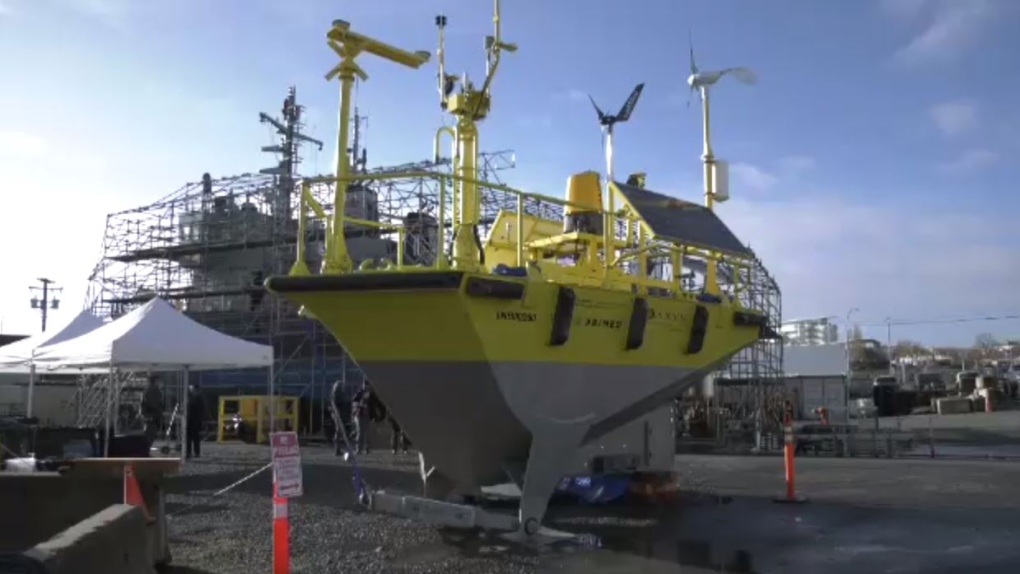
Measuring nine metres tall and six metres long, the big yellow buoy is equipped with a wind turbine and various data-gathering instruments. (CTV News)
Updated Nov. 10, 2021
VICTORIA -
A new research project at the University of Victoria will harness the power of ocean winds in an effort to get remote coastal communities in British Columbia off diesel power.
Later this month, the university will launch a five-and-a-half-tonne ocean buoy that will measure offshore winds near the Trial Islands of Victoria.
The university says the wind buoy is the first of its kind in B.C. and will help off-grid communities that rely on diesel generators for electricity to transition to renewable wind power.
Measuring nine metres tall and six metres long, the big yellow buoy is equipped with a wind turbine and various data-gathering instruments.
The buoy will gather oceanographic and meteorological data in the Trial Islands area for six months, transmitting the data to researchers in real-time to measure wind speeds and patterns.
"The data is critical in helping address a significant knowledge gap that has prevented offshore wind energy produced by floating turbines from being used more widely," said researcher Brad Buckham in a statement Wednesday.
Buckham leads the university's Pacific Regional Institute for Marine Energy Discovery (PRIMED) alongside fellow researcher Curran Crawford.
"While land-based wind turbines still account for a small percentage of global energy needs, they have become an increasingly popular source of renewable energy," Buckham said. "By contrast, wind energy produced by turbines located in the ocean hasn’t been exploited to the same extent, mostly because of the lack of data needed by industry to develop accurate, certifiable, insurable technologies."
The buoy was constructed by AXYS Technologies in Sidney, B.C. Later this month, a tugboat will pull a barge carrying the wind buoy to the Trial Islands, near Oak Bay, B.C., where the device will be deployed.
“The group has been working on this for several years, so everyone is excited to see the buoy deployed and start seeing the data,” said researcher and deployment manager Chloe Immonen.
The university hopes the buoy will not only benefit remote communities hoping to ditch diesel fuel but will also contribute to a better understanding of the way wind can be harnessed to create sustainable electric power.
"We work with a lot of coastal First Nations communities, as well as fishing lodges and marines to look at their wind, wave and tidal resource to look at how we could displace diesel," Crawford said. "What the data this is going to give us is wind resource potentials.
No comments:
Post a Comment